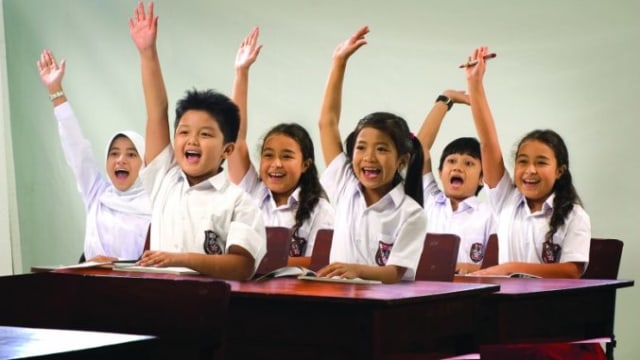Indonesia Successfully Voices Educational Balance Between Developed and Developing Countries at the 144th IPU
March 24, 2022
In the world of education which is one of the social systems, in the end it also experiences the impact of globalization. This of course has implications for the gap between education in developed countries and education in developing countries.
This condition cannot be tolerated because it will cause too large an inequality so that it can create a gap in education in the world. During the 144th IPU session in Bali, this issue came to the fore.
Responding to the gap between developed and developing countries, Indonesia expressly voices the importance of balance in the field of education between developed and developing countries.
In these two years, Indonesia has always voiced that the education sector must be an important focus so that there is no too far distance between education in the world. This was hampered by the long Covid-19 pandemic.
However, Indonesia continues to fight for the rights of developing countries who want to experience proper education during the pandemic. If developed countries continue to pursue online-based education, education opportunities for developing countries are still very limited.
Of course, this must be a joint concern of all participants of the 144th IPU. The importance of a solution in balancing the wishes of developed countries whose education continues as usual through online zoom, with developing countries whose internet network is still very weak. .
As is known, the discussion on the issue of education inequality has become quite a debate in the IPU session in Bali. There was a difference of opinion regarding the effort to provide teachers and it should be able to reach even remote places. In addition, there are also suggestions that arise regarding the regulation of student capacity in one classroom.
This must be a challenge for archipelagic countries such as Indonesia and other archipelagic countries participating in the IPU – 144th. This is considered reasonable indeed because there are differences in geographical location when compared to Europe or America which are still located in the same area as archipelagic countries such as Indonesia, which is a very large archipelagic country with around 17,000 islands spread across the archipelago.
Developed countries, as is known, have already built infrastructure such as fiber optic infrastructure, internet and so on. However, developing countries have not yet fully developed the infrastructure due to geographical constraints and very limited costs.
It is not an easy thing to catch up with the education of developed countries such as Japan, America, England, Germany, France and other developed countries. It is known that the education of developed countries is supported from several fields as well as the education system which is comprehensive and running well. In addition, education in developed countries has become their culture so that the people already understand the need for education for their lives and progress.
On the other hand, in contrast to developing countries, education has not yet completely become a community need. They still think short term not long term. Therefore, in addition to sophisticated technology in supporting education in developing countries, it is also necessary to increase public awareness of the importance of education. That way, developing countries can gradually catch up with developed countries that are already established from various sides. It is of course a necessity.
Indonesia’s attitude in voicing the balance of education between developed and developing countries should be appreciated because even though there are differences of opinion about it. However, Indonesia was able to successfully fight for it so that the developed countries participating in the 144th IPU could understand and understand the purpose of Indonesia’s struggle for a balance of education in the world. With the completion of the 144th IPU in Nusa Dua Bali, it is hoped that all IPU delegates present can bring messages or the results of the IPU Bali to their respective countries so that they can be implemented so that there will be real action on the agreements contained in the 144th IPU.
*Pandu Wibowo (Writer) is the Steering Committee of the National Anti Hoax Journalist Network.
